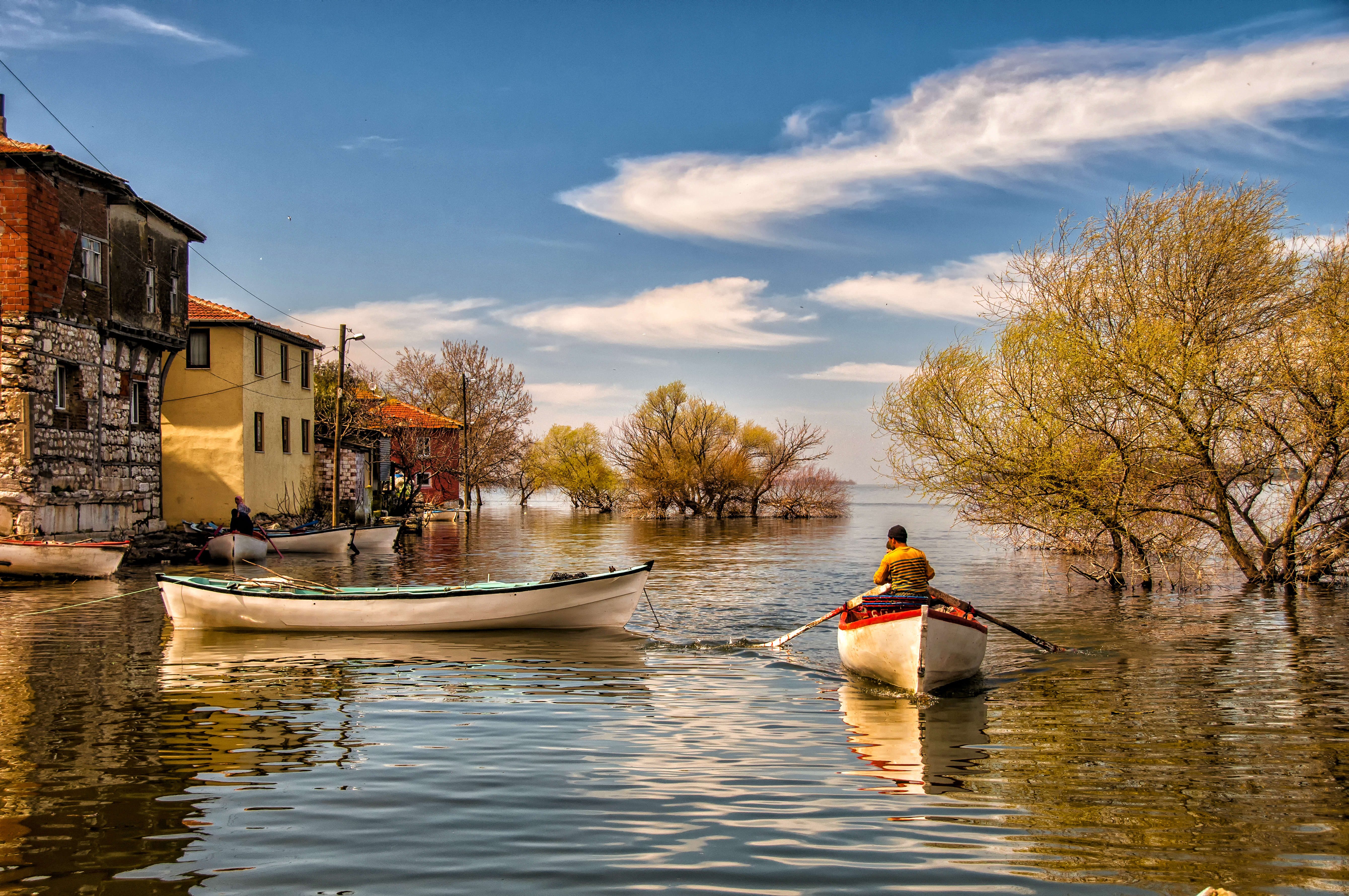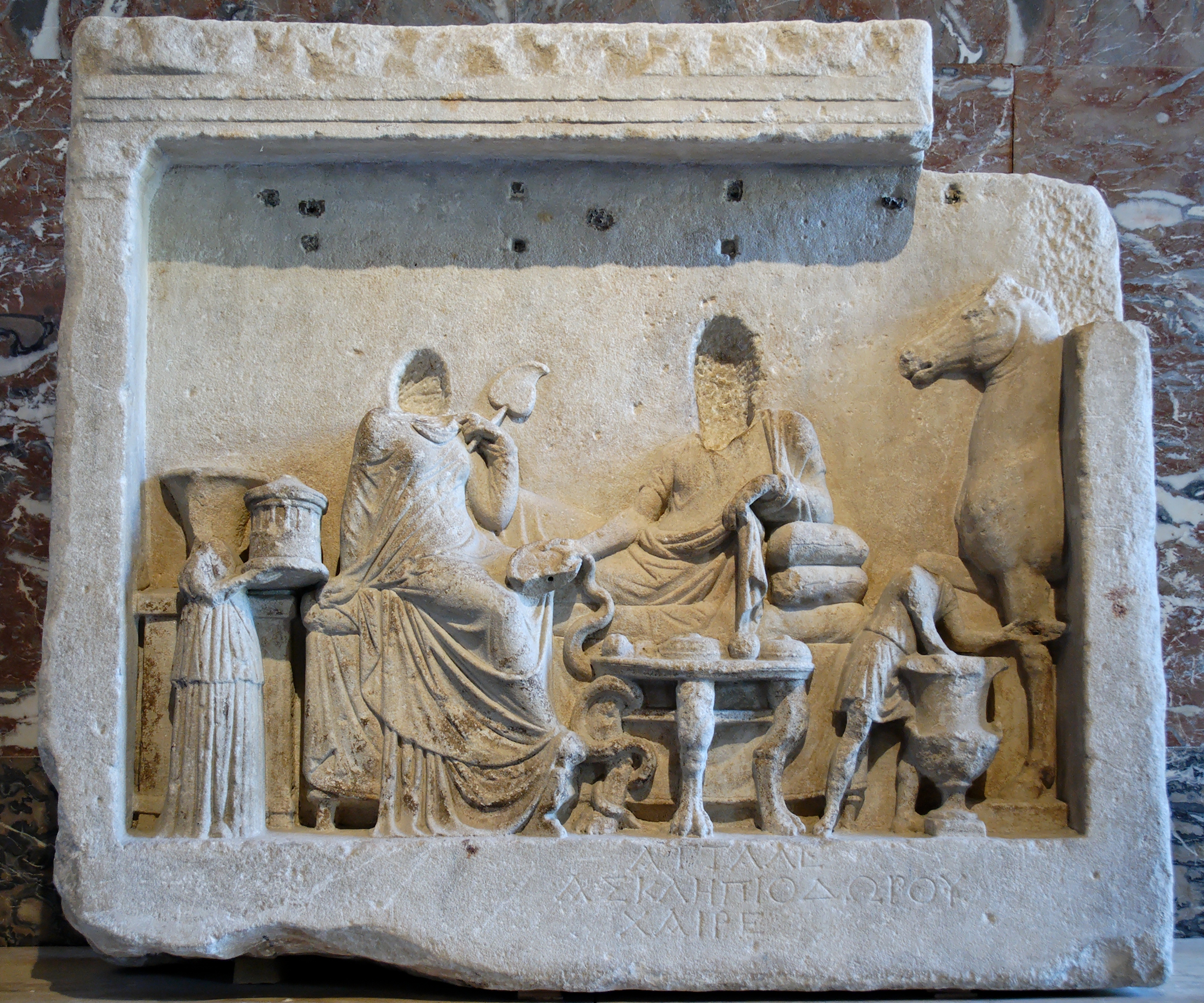|
Lake Aphnitis
Artynia or Aphnitis was the name of a swamp or lake of Asia Minor mentioned by ancient geographers. Its exact identity is uncertain. The identification of Artynia with Aphnitis is due to Stephanus of Byzantium. Pliny places Artynia near Miletupolis, having the Rhyndacus river flow through it, so that Pliny's Artynia can be said to correspond to Aboulliond. Strabo mentions three lakes of Cyzicene, naming them after nearby cities: Lake Dascylitis near Dascylium, Miletopolitis near Miletupolis, and Apolloniatis near Apollonia. Lake Dascylitis is also given the name of Aphnitis. See also *Cyzicus Cyzicus (; grc, Κύζικος ''Kúzikos''; ota, آیدینجق, ''Aydıncıḳ'') was an ancient Greek town in Mysia in Anatolia in the current Balıkesir Province of Turkey. It was located on the shoreward side of the present Kapıdağ Peni ... References *F. W. Hasluck, ''Cyzicus''. Cambridge, 191045-48 *John Anthony Cramer. ''A geographical and historical description of A ... [...More Info...] [...Related Items...] OR: [Wikipedia] [Google] [Baidu] |
Asia Minor
Anatolia, tr, Anadolu Yarımadası), and the Anatolian plateau, also known as Asia Minor, is a large peninsula in Western Asia and the westernmost protrusion of the Asian continent. It constitutes the major part of modern-day Turkey. The region is bounded by the Turkish Straits to the northwest, the Black Sea to the north, the Armenian Highlands to the east, the Mediterranean Sea to the south, and the Aegean Sea to the west. The Sea of Marmara forms a connection between the Black and Aegean seas through the Bosporus and Dardanelles straits and separates Anatolia from Thrace on the Balkan peninsula of Southeast Europe. The eastern border of Anatolia has been held to be a line between the Gulf of Alexandretta and the Black Sea, bounded by the Armenian Highlands to the east and Mesopotamia to the southeast. By this definition Anatolia comprises approximately the western two-thirds of the Asian part of Turkey. Today, Anatolia is sometimes considered to be synonymous with Asia ... [...More Info...] [...Related Items...] OR: [Wikipedia] [Google] [Baidu] |
Greco-Roman Geographers
;Pre-Hellenistic Classical Greece *Homer *Anaximander *Hecataeus of Miletus *Massaliote Periplus *Scylax of Caryanda (6th century BC) *Herodotus ;Hellenistic period *Pytheas (died c. 310 BC) *''Periplus of Pseudo-Scylax'' (3rd or 4th century BC) *Megasthenes (died c. 290 BC) *Autolycus of Pitane (died c. 290 BC) *Dicaearchus (died c. 285 BC) *Deimakos (3rd century BC) *Timosthenes ( fl. 270s BC) *Eratosthenes (c. 276-194 BC) *Scymnus ( fl. 180s BC) *Hipparchus (c. 190-120 BC) *Agatharchides (2nd century BC) *Posidonius (c. 135-51 BC) *Pseudo-Scymnus (c. 90 BC) *Diodorus Siculus (c. 90-30 BC) *Alexander Polyhistor (1st century BC) ;Roman Empire period *''Periplus of the Erythraean Sea'' *Strabo (64 BC - 24 AD) *Pomponius Mela (fl. 40s AD) *Isidore of Charax (1st century AD) *Mucianus (1st century AD) *Pliny the Elder (23-79 AD), '' Natural History'' *Marinus of Tyre (c. 70–130)Hubert Cancik and Helmuth Schneider (ed.): "Marinus", '' Brill's New Pauly'', Brill, 2010: M. of Tyre ... [...More Info...] [...Related Items...] OR: [Wikipedia] [Google] [Baidu] |
Stephanus Of Byzantium
Stephanus or Stephan of Byzantium ( la, Stephanus Byzantinus; grc-gre, Στέφανος Βυζάντιος, ''Stéphanos Byzántios''; centuryAD), was a Byzantine grammarian and the author of an important geographical dictionary entitled ''Ethnica'' (). Only meagre fragments of the dictionary survive, but the epitome is extant, compiled by one Hermolaus, not otherwise identified. Life Nothing is known about the life of Stephanus, except that he was a Greek grammarian who was active in Constantinople, and lived after the time of Arcadius and Honorius, and before that of Justinian II. Later writers provide no information about him, but they do note that the work was later reduced to an epitome by a certain Hermolaus, who dedicated his epitome to Justinian; whether the first or second emperor of that name is meant is disputed, but it seems probable that Stephanus flourished in Byzantium in the earlier part of the sixth century AD, under Justinian I. The ''Ethnica'' Even as an ... [...More Info...] [...Related Items...] OR: [Wikipedia] [Google] [Baidu] |
Pliny The Elder
Gaius Plinius Secundus (AD 23/2479), called Pliny the Elder (), was a Roman author, naturalist and natural philosopher, and naval and army commander of the early Roman Empire, and a friend of the emperor Vespasian. He wrote the encyclopedic ''Naturalis Historia'' (''Natural History''), which became an editorial model for encyclopedias. He spent most of his spare time studying, writing, and investigating natural and geographic phenomena in the field. His nephew, Pliny the Younger, wrote of him in a letter to the historian Tacitus: Among Pliny's greatest works was the twenty-volume work ''Bella Germaniae'' ("The History of the German Wars"), which is no longer extant. ''Bella Germaniae'', which began where Aufidius Bassus' ''Libri Belli Germanici'' ("The War with the Germans") left off, was used as a source by other prominent Roman historians, including Plutarch, Tacitus and Suetonius. Tacitus—who many scholars agree had never travelled in Germania—used ''Bella Germani ... [...More Info...] [...Related Items...] OR: [Wikipedia] [Google] [Baidu] |
Miletupolis
Karacabey is a town and district of Bursa Province in the Marmara Region of Turkey. It is located just west of the Simav River near its confluence with the Adirnaz River. District of Karacabey borders districts of Mudanya and Nilüfer from east, ones of Mustafakemalpaşa and Susurluk from south, one of Manyas from southwest and Bandırma from west. It is sited on the ancient town of Miletopolis. Karacabey is an industrial area as well as an agricultural one. It is known as the plantation area of a special variety of onions. There are many famous food factories around Karacabey such as Nestle and many varieties of vegetables and fruits are planted in Karacabey. There is a nearby lake called Uluabat. The Marmara Sea is 32 km to the north. The town is named for a Turkish soldier during the Ottoman era named Karaca Bey. The former name of the town was Mihalich Hazlitt, W. '' The Classical Gazetteer: A Dictionary of Ancient Geography, Sacred and Profane.''Macestus" Whittake ... [...More Info...] [...Related Items...] OR: [Wikipedia] [Google] [Baidu] |
Aboulliond
Lake Uluabat ( tr, Uluabat Gölü and ) is the name of a freshwater lake in the vicinity of Bursa, Turkey. It is a large lake, covering an area of between 135 and 160 km2 depending on the water level, but very shallow, being only 3 m deep at its deepest point. The lake contains eight islands and one other that is sometimes an island and sometimes a peninsula. The largest island is known as Halilbey Island. In the southwest the lake is fed by the Mustafakemalpaşa River, which has formed a silty delta. Water leaves the lake by way of the Ulubat stream, flowing to the west, and reaches the Sea of Marmara via the Susurluk River. Most shores of the lake are covered in submerged plants, and it has the most extensive white water lily beds in Turkey. Uluabat Lake is one of the breeding areas for the endangered pygmy cormorant (''Phalacrocorax pygmeus''). The latest DHKD (Society for the Protection of Nature Turkey) survey in June 1998 found 823 pygmy cormorant pairs, 105 night h ... [...More Info...] [...Related Items...] OR: [Wikipedia] [Google] [Baidu] |
Strabo
Strabo''Strabo'' (meaning "squinty", as in strabismus) was a term employed by the Romans for anyone whose eyes were distorted or deformed. The father of Pompey was called "Pompeius Strabo". A native of Sicily so clear-sighted that he could see things at great distance as if they were nearby was also called "Strabo". (; el, Στράβων ''Strábōn''; 64 or 63 BC 24 AD) was a Greek geographer, philosopher, and historian who lived in Asia Minor during the transitional period of the Roman Republic into the Roman Empire. Life Strabo was born to an affluent family from Amaseia in Pontus (in present-day Turkey) in around 64BC. His family had been involved in politics since at least the reign of Mithridates V. Strabo was related to Dorylaeus on his mother's side. Several other family members, including his paternal grandfather had served Mithridates VI during the Mithridatic Wars. As the war drew to a close, Strabo's grandfather had turned several Pontic fortress ... [...More Info...] [...Related Items...] OR: [Wikipedia] [Google] [Baidu] |
Cyzicene
Cyzicus (; grc, Κύζικος ''Kúzikos''; ota, آیدینجق, ''Aydıncıḳ'') was an ancient Greek town in Mysia in Anatolia in the current Balıkesir Province of Turkey. It was located on the shoreward side of the present Kapıdağ Peninsula (the classical Arctonnesus), a tombolo which is said to have originally been an island in the Sea of Marmara only to be connected to the mainland in historic times either by artificial means or an earthquake. The site of Cyzicus, located on the Erdek and Bandırma roads, is protected by Turkey's Turkish Ministry of Culture, Ministry of Culture. History Ancient The city was said to have been founded by Pelasgians from Thessaly, according to tradition at the coming of the Argonauts; later it received many colonies from Miletus, allegedly in 756 BC, but its importance began near the end of the Peloponnesian War when the conflict centered on the sea routes connecting Greece to the Black Sea. At this time, the cities of Athens an ... [...More Info...] [...Related Items...] OR: [Wikipedia] [Google] [Baidu] |





